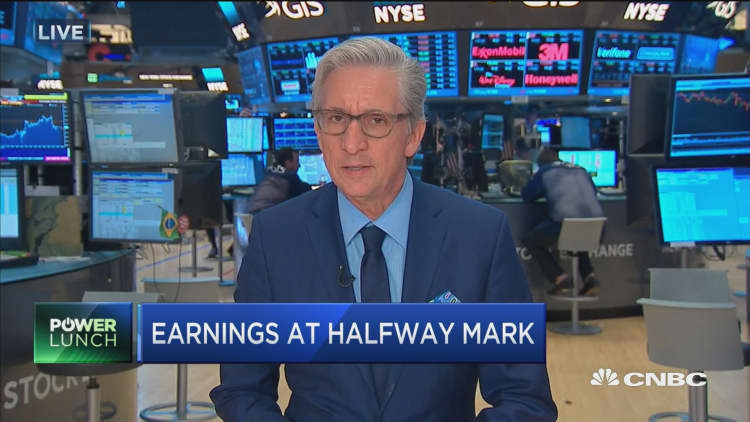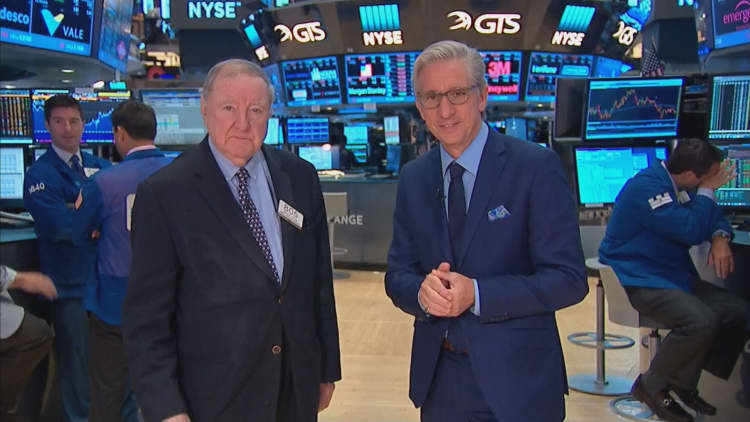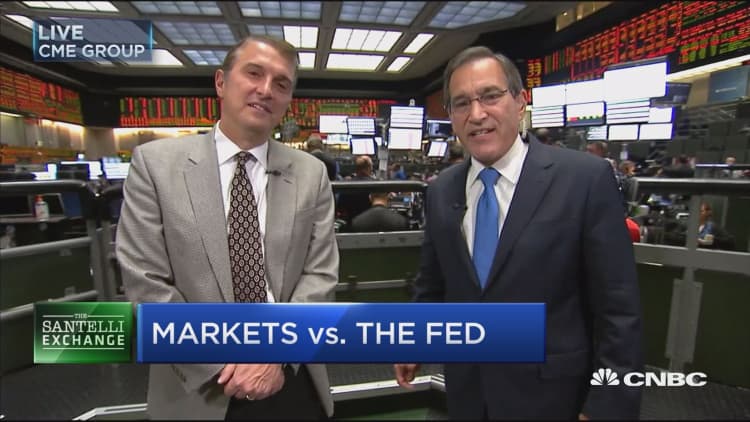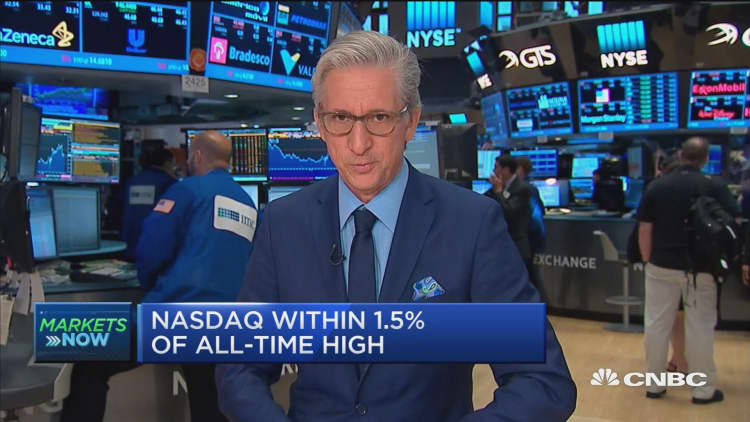



U.S. stocks closed mostly higher Thursday, amid declines in oil prices, as major tech stocks gained. The Nasdaq composite ended at its highest of the year so far, helped by gains in Apple, Amazon and Facebook.
Facebook closed more than 1 percent higher at a record after reporting earnings that soundly beat on both the top and bottom line, helped by better-than-expected ad revenue. Earlier, shares briefly jumped 4 percent to hit an all-time intraday high.
Amazon.com closed more than 2 percent higher and shares of Alphabet ended about half a percent higher ahead of their earnings reports, due after the close.
"It's a mixed response to earnings," said Peter Boockvar, chief market analyst at The Lindsey Group. "People know Facebook is Facebook and it's not necessarily indicative of the economy. I think the Ford earnings are concerning."
Ford Motor closed nearly 8.2 percent lower in its worst day since August 8, 2011. The automaker posted quarterly earnings that missed expectations and said its full-year earnings forecast was at risk with U.S. auto sales expected to fall in the second half, Reuters reported.
Declines in oil also weighed on stocks. The Dow Jones industrial average fell for a fourth-straight day, ending about 15 points lower after earlier falling 100 points. Boeing had the greatest negative impact on the index, followed by Caterpillar, Chevron and Exxon Mobil.
U.S. crude oil futures settled 78 cents, or 1.86 percent lower, at $41.14 a barrel, in bear market territory, or more than 20 percent below its high for the year so far, touched in early June. Intraday, WTI hit a fresh low going back to April 20.
"I think it's probably adding a little bit to the confusion or lack of enthusiasm for stocks," said Mark Luschini, chief investment strategist at Janney Montgomery Scott.
U.S. crude oil futures extended losses after Genscape data showed a 300,000-barrel build of crude stockpiles through June 26 at the Cushing, OK delivery point for the West Texas Intermediate contract, traders who saw the data said in a Reuters report.
"With oil below $45 that concerns me a bit," Doug Cote, chief market strategist at Voya Investment Management, said, noting impact on sectors such as industrials and materials.
Telecommunications, the best-performing sector in the S&P for the year so far, led decliners in the index Thursday. The energy sector closed mildly lower as the second-worst performer on the day but ended well off session lows.
The Dow was within 1 percent of its all-time intraday high touched last week, while the S&P 500 was less than a third of a percent away. The Nasdaq composite was within half a percent of its 52-week intraday high.
"The big thing that's weighing on stocks is exhaustion," said Lance Roberts, chief investment strategist at Clarity Financial.
The U.S. dollar index was nearly 0.4 percent lower, with the euro around $1.108 and the yen was near 105.4 yen versus the greenback. Sterling was near $1.316.
The U.S. dollar index strengthened against the yen in afternoon trade after a Reuters report raised speculation the Japanese government is pressuring the country's central bank to ease. The newswire cited a draft statement from the Ministry of Finance.
The Bank of Japan is scheduled to announce its decision on monetary policy overnight.
In economic news, weekly jobless claims rose to 266,000. The U.S. advance June goods trade deficit was $63.3 billion, up from $61.1 billion in May.
Treasury yields were mixed, with the lower near 0.71 percent and the 10-year yield mildly higher around 1.51 percent. The Treasury auctioned $28 billion in 7-year notes at a yield of 1.340 percent. The bid-to-cover ratio, an indicator of demand, matched the recent average of 2.51.
European stocks were lower, with the STOXX Europe 600 Banks index off more than 2.5 percent ahead of bank stress test results due Friday.
The Nikkei 225 closed 1.1 percent lower, while the Shanghai composite closed a touch higher.
U.S. stocks closed mixed Wednesday after the U.S. Federal Reserve left interest rates unchanged without giving a clear signal on the timing of the next rate hike. Apple jumped 6.5 percent in its best day in two years, while Coca-Cola fell 3.3 percent after both firms' earnings reports.
Apple closed 1.35 percent higher Thursday.
Major U.S. Indexes
As of the close Thursday, the Dow was tracking for a weekly decline of more than half a percent and S&P was tracking for a weekly loss of about 0.2 percent. The Nasdaq composite was on pace for a weekly gain of roughly 1 percent.
The Dow Jones industrial average closed 15.82 points lower, or 0.09 percent, at 18,456.35, with Apple leading advancers and Boeing the greatest laggard.
The closed 3.48 points higher, or 0.16 percent, at 2,170.06, with consumer staples leading six sectors higher and telecommunications the greatest decliner.
The Nasdaq composite closed 15.17 points higher, or 0.30 percent, at 5,154.98.
The CBOE Volatility Index (VIX), widely considered the best gauge of fear in the market, traded lower near 12.7.
Advancers were a step ahead of decliners on the New York Stock Exchange, with an exchange volume of 860 million and a composite volume of nearly 3.6 billion in the close.
Gold futures for August delivery settled up $5.60 at $1,332.30 an ounce.
On tap this week:
Friday
Earnings: Exxon Mobil, Chevron, Merck, AB InBev, UPS, UBS, Sanofi, Xerox, CBOE Holdings, Philips 66, Cabot Oil, Barclays, Eni, Tenneco, Lexmark, CNA Financial
8:30 a.m. Q2 GDP
9:30 a.m. San Francisco Fed President John Williams
9:45 a.m. Chicago PMI
10 a.m. University of Michigan consumer sentiment
1 p.m. Dallas Fed President Rob Kaplan
*Planner subject to change.


